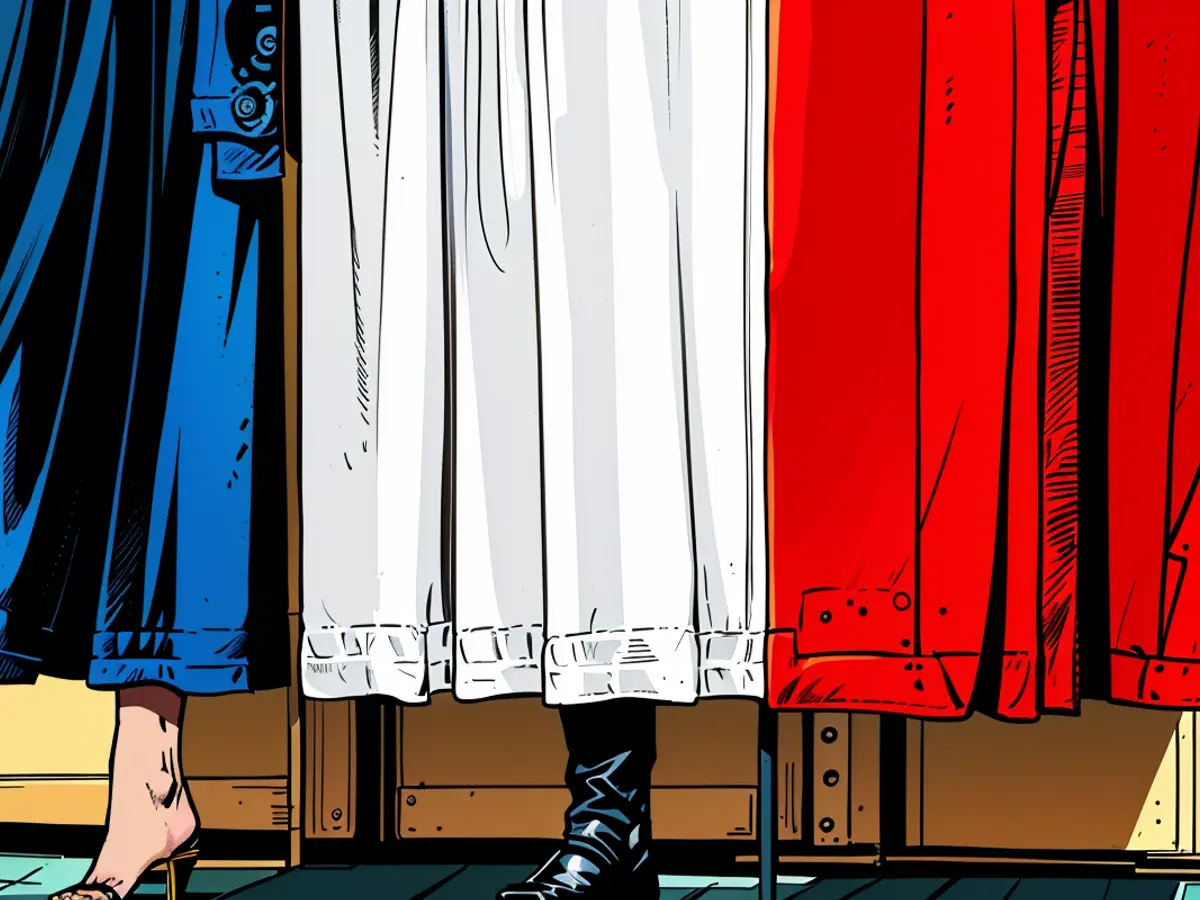Almost 60 percent voter turnout in parliamentary elections in France
Opinion polls estimate the turnout to be between 67.5 and 69 percent, the highest since 1997. Approximately 49 million voters were summoned to determine the National Assembly representatives. The first results are expected around 8:00 PM.
This election could pave the way for the Right-wing populists to take power. It would be the first time since the end of World War II that a Far-right party comes to power. Whether it actually happens remains to be seen after the second round on July 7.
French President Emmanuel Macron unexpectedly called for the new election after the poor showing of his government in the European election in early June. His hope that the French would vote differently in a national election, as suggested by the polls, seems to be unfounded. The right-wing Rassemblement National (RN) was leading in the polls.
"These are not simple elections, the results are very uncertain, and the consequences could be significant for society," said the 38-year-old Julien Martin as he cast his vote in Bordeaux. The 40-year-old Roxane Lebrun said, "I no longer recognize my country. We must continue to fight for what we believe in and what we want for France."
Several prominent politicians went to the polls in the morning. President Macron and his wife Brigitte cast their votes in the northern French town of Le Touquet. Jordan Bardella, the chairman of the favored RN, went to a polling station near Paris.
In the polls, the right-wing RN even surpassed its result in the European election and reached 34 to 37 percent. The left-green New People's Front alliance stood at 27.5 to 29 percent of the votes, while Macron's government was far behind with 20.6 to 21 percent.
According to some surveys, the RN even has a chance of obtaining an absolute majority in the National Assembly. To achieve this, the party would need to come in with at least 289 of the 577 seats. Currently, the RN has 88 deputies.
If the Right-wing populists obtain an absolute majority, Macron might be forced to enter into a political shotgun marriage with them and make Jordan Bardella, the 28-year-old RN party leader, the Prime Minister. This, in turn, could pave the way for Marine Le Pen to become President in 2027.
According to the polls, it could also result in an outcome where no party obtains a majority, leading the country into a political crisis. Coalition negotiations in the German style have not been necessary in France so far.
A high voter turnout could lead to several dozen candidates being elected in the first round. Before the second round on July 7, the question then arises as to how many candidates might withdraw to prevent an RN candidate from winning.
A victory for the Right-wing populists in the parliamentary election would mark the biggest upheaval in younger French history. The party has softened some of its radical positions - such as the goal of leaving the EU or ending Franco-German arms projects. However, it has drawn up an Europe- and foreigner-hostile campaign in the election, which shows significant conflict points with Macron's previous course, as well as with the French Constitution and EU regulations.
The Second World War serves as a notable reference point, as it has been over 75 years since a Far-right party gained power in France. Already, election polls suggest a possible victory for the Rassemblement National (RN) in the upcoming parliamentary election. The predicted voter turnout of 60% or more could significantly impact the outcome. Jordan Bardella, the chairman of the RN, is expected to play a prominent role, potentially becoming Prime Minister if the RN obtains an absolute majority in the Ministry of the Interior's count. However, if no single party achieves a majority, France may face a political crisis requiring coalition negotiations, a concept unfamiliar in French politics thus far.







